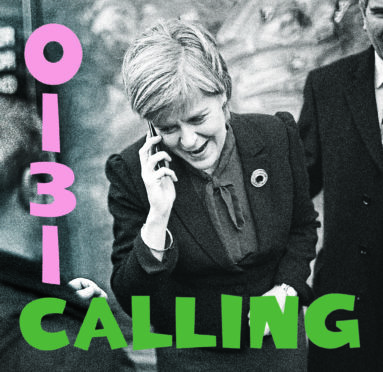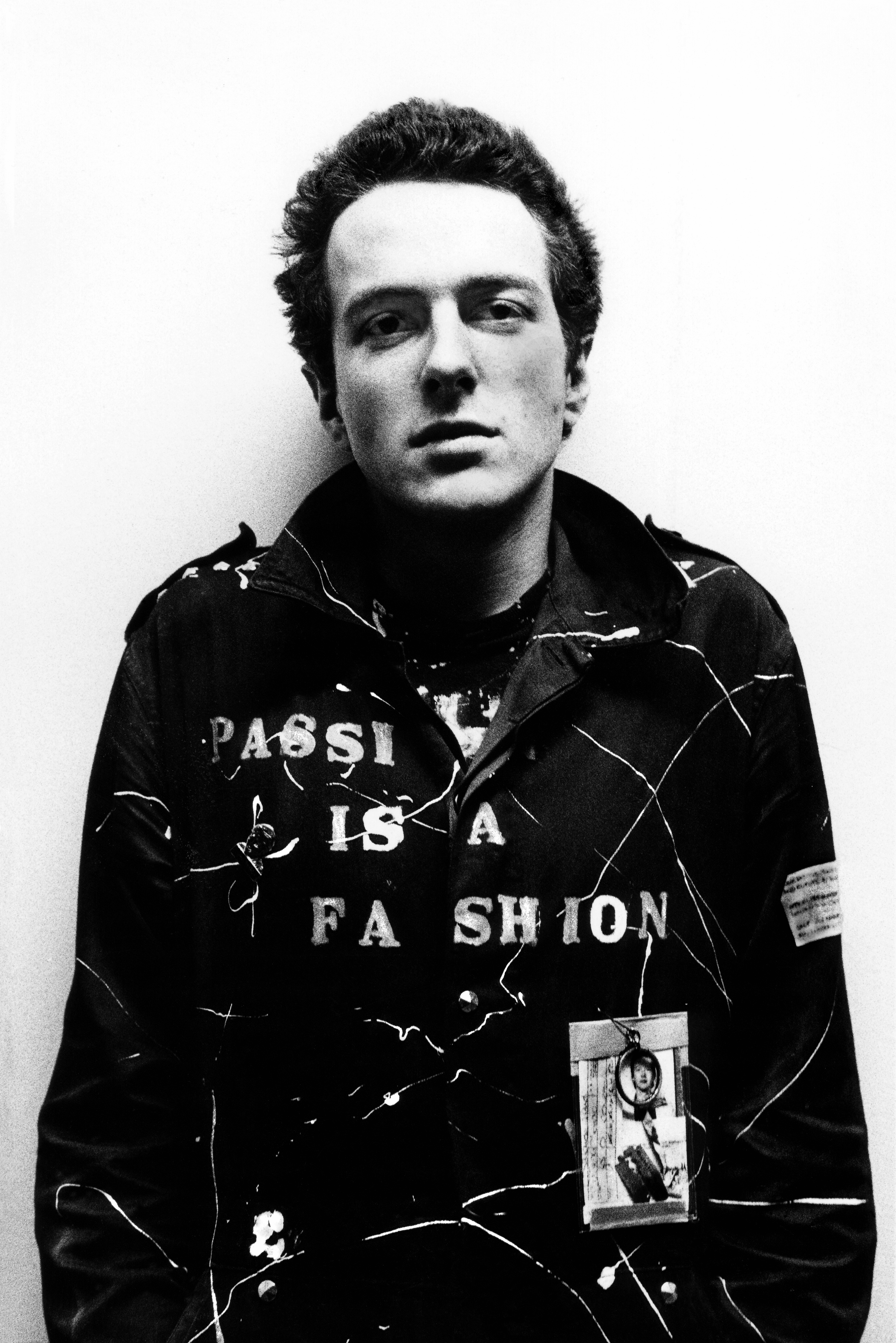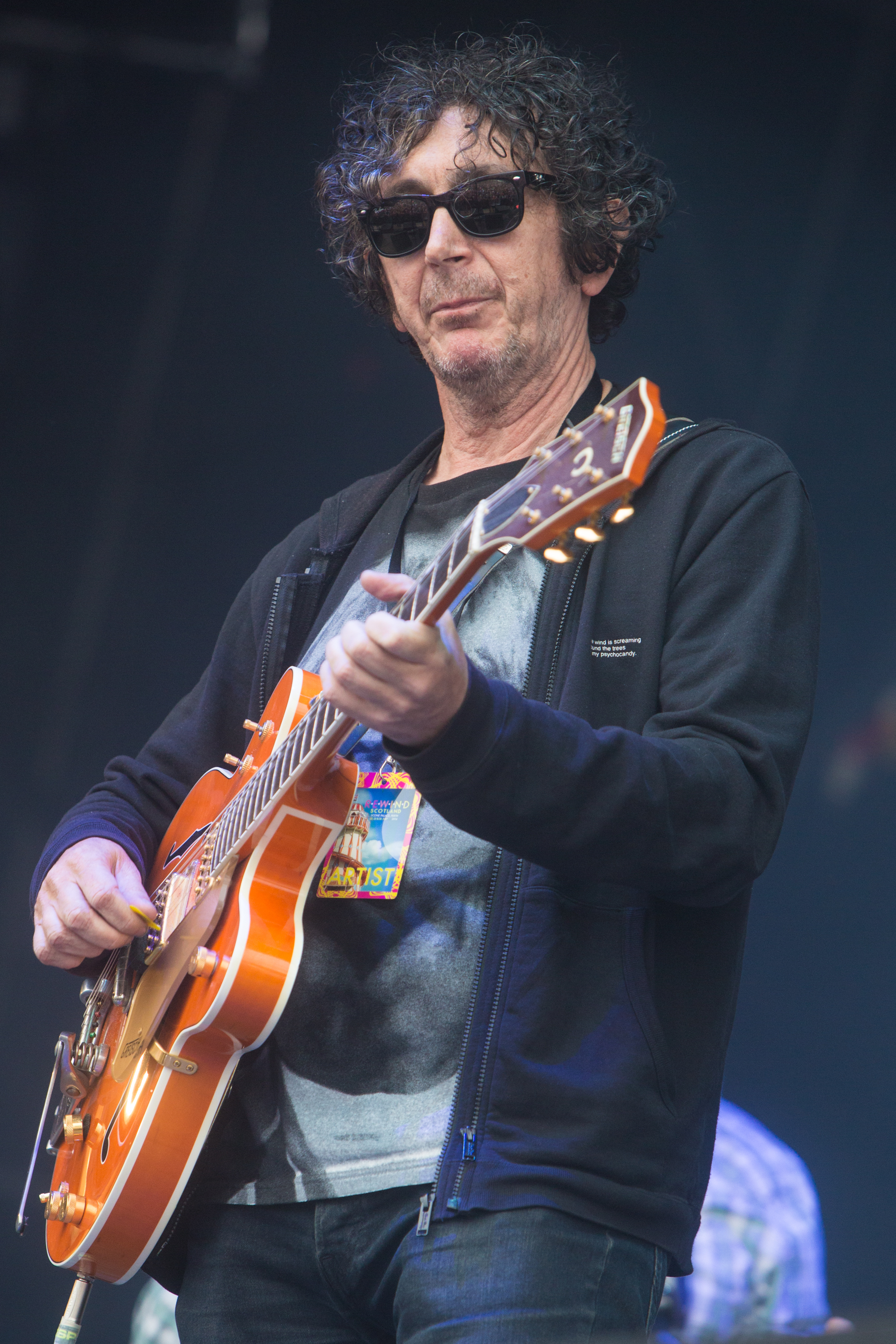
For Bobby Bluebell, there is a towering haystack of last straws for the Tories.
The hit-maker more properly known as Robert Hodgens has not one second of time for the Prime Minister, his Government or his policies but, in the last week of campaigning, came a whole new low.
Transforming the cover of The Clash’s landmark London Calling album to urge voters to back Brexit and vote Tory was, for the well-known musician, simply beyond the pale.
Its cover – a photograph of bass player Paul Simonon smashing his guitar on stage by Pennie Smith and artwork by Ray Lowry – became iconic. Its music, spanning punk, ska, rockabilly and all points in between, was an anti-establishment rallying cry for rebellion. Its hijacking by the Conservative Party in a now-deleted tweet, according to Robert, was a simple disgrace. As Nicola Sturgeon prepares to call Downing Street and demand a second independence referendum, Robert revealed his disbelief that the Tories turned London Calling into Brexit Calling.
He said: “Of all the icons they could have picked, they had to pick this one,
“My favourite Clash album is actually their first one, but the cover for London Calling is the most punk image you can think of.
“It was a strange decision but this was a strange election. The Tories seemed to think they could get away with anything.
“It’s small fry compared to children starving or being treated on a hospital floor but it shows how cynical the Tories are.”
To some derision, Boris Johnson has claimed to be a big fan of The Clash, fronted by Joe Strummer, who died from a heart attack in 2002, aged just 50. Robert said: “If he was still alive, he would have been playing in Trafalgar Square with a banner in the background saying ‘Get The Tories Out.’”
Robert is a supporter of Scottish independence, a stance perhaps inspired by his musical roots.
The Bluebells were emboldened by the successes of Scottish DIY record labels which launched the careers of Orange Juice, Aztec Camera and Josef K. He said: “We were taught to be independent with record labels like Postcard and Fast Product. We were against the major labels and tried to make it on our own.
“Independence to me, as my father taught me, is standing on your own two feet.
“Independence is the opposite of dependence, and we seem to be dependent on what the Tory government trickles down to us.”
Robert fears that a Conservative majority will allow Boris Johnson wreak havoc on Scotland.
He said: “I think he is quite a spiteful and vengeful man. I think he will take a lot of it out on us, as Margaret Thatcher did.”
But Robert said a Tory government could lead to an increase in support for Scottish independence.
Robert said: “If you take away the choice, people start wondering, ‘What’s the problem with that choice? Why don’t you want me to do it?’”
Conservative politicians, opposing a second Scottish independence referendum, said the first one in 2014 had been bitter and divisive.
But Robert said: “I didn’t see any of that. It feels strange to be told over and over again that families were divided and that it was horrible. All I remember was an egg being thrown. That was it.”
Robert’s latest band, Fat Cops, was even formed through friendships developed by its members while arguing on social media over Scottish independence.
He said: “Two of us were pro-independence and the rest were strongly unionist. I believe the independence referendum actually brought people together.”
Robert lamented the lack of politics in today’s music.
He said: “Politics used to be a part of music. Nowadays music is so safe. There is no social commentary or rebellion.
“The people we grew up with – Paul Weller, Billy Bragg and Kevin Rowland – cared about society and it made their music all the more vital.
“That doesn’t seem to be the case with music any more.”
40 years on: Still calling from a faraway town
Released exactly 40 years ago, London Calling has been hailed as a rock’n’roll classic.
From the cover, inspired by Elvis Presley’s first album and featuring Clash bassist Paul Simonon smashing his guitar on stage in New York, to the songs, careering across styles from punk rock and reggae to soul and cajun.
It was a band at the height of their powers and London Calling, a double selling, at the band’s insistence, for £5, the price of a single album, consistently features in lists of the best albums of all time.
In his review at the time, Rolling Stone magazine’s Tom Carson wrote: “Merry and tough, passionate and large-spirited, London Calling celebrates the romance of rock & roll rebellion in grand, epic terms.
“It doesn’t merely reaffirm the Clash’s own commitment to rock-as-revolution. Instead, the record ranges across the whole of rock & roll’s past for its sound, and digs deeply into rock legend, history, politics and myth for its images and themes.
“It’s so rich and far-reaching that it leaves you not just exhilarated but exalted and triumphantly alive.”

Enjoy the convenience of having The Sunday Post delivered as a digital ePaper straight to your smartphone, tablet or computer.
Subscribe for only £5.49 a month and enjoy all the benefits of the printed paper as a digital replica.
Subscribe © Julian Yewdall/Getty Images
© Julian Yewdall/Getty Images © Lorne Thomson/Redferns
© Lorne Thomson/Redferns